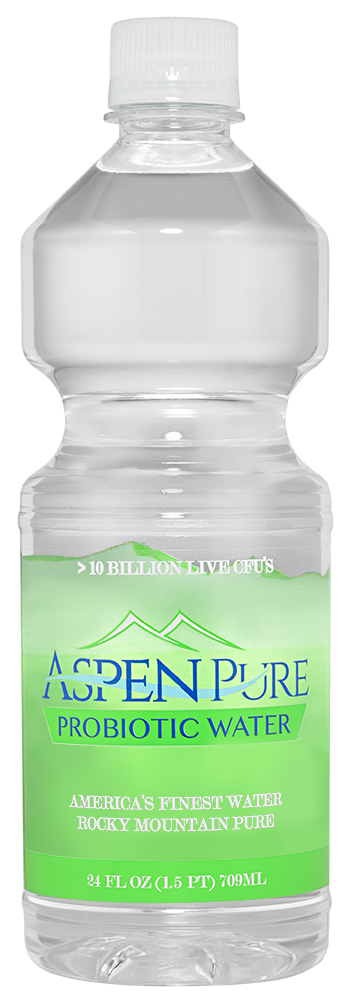Optimum Wellness Presented by King Soopers, Sponsored by Aspen Pure Probiotic Water
Author- Dr. James Rouse
Over two thousand years ago, Hippocrates declared that, “all disease begins in the gut.” Your gastrointestinal tract (gut) is an intricate ecosystem (aka microbiome) made up of living organisms including bacteria, fungi, and viruses, both good and not so good. Probiotics are live bacteria that help promote health and prevent disease. What we eat, medication (in particular antibiotics) use, our environment, and our genetics can all affect the gut microbiome.
The word probiotic comes from probios, meaning “for life.” And sometimes they are called “friendly bacteria,” “good bacteria,” or even “good bugs,” “gut bugs,” or “friendly critters.” No matter what you call them, probiotics are key for good health. Their roles include the production and absorption of fundamental vitamins minerals, and neurotransmitters, influencing calorie absorption, and defending against “bad bacteria” or pathogens. Probiotics help regulate our immune system and support normal digestion.
Early research indicated that the amount of bacteria living in our guts outnumbered human cells in the body by many times. That theory has now been adjusted so that it appears that bacteria just slightly outnumber human cells 1.3:1. There are estimates of at least 1000 varieties of bacteria living in the human gut. Different types of gut bacteria may help explain why some people get sick more often or gain weight easier than others, for example. If we are exposed to disruptive pathogens (bad bugs, bacteria, fungi, or viruses), our gut integrity can be challenged and we can be more susceptible to illness. Antibiotics, though, when used appropriately can be life-saving, can damage our gut and wipe out the good bacteria, creating an opportunity and environment for future problems. This is why many doctors and health care practitioners may recommend supplementing with probiotics after finishing a round of antibiotics.
Probiotics in the gut help enhance the absorption of B vitamins, Vitamin K, calcium, iron, zinc, and magnesium. Some studies in animals and humans suggest that probiotics have a positive effect on bone density. On the contrary antibiotic use may compromise the absorption and production of these vital nutrients. Probiotics may be recommended as a way to replenish what was lost.
The role of probiotics in human health and disease continues to be an important aspect of ongoing research in human nutrition and the microbiome. It is always prudent to discuss the possibility of supplementation with your health care provider. Probiotics are naturally found in many fermented foods, and may also be used in supplement form – from probiotic water to drinkable yogurt, capsules, powders and tiny pills.


